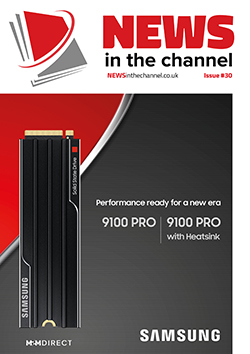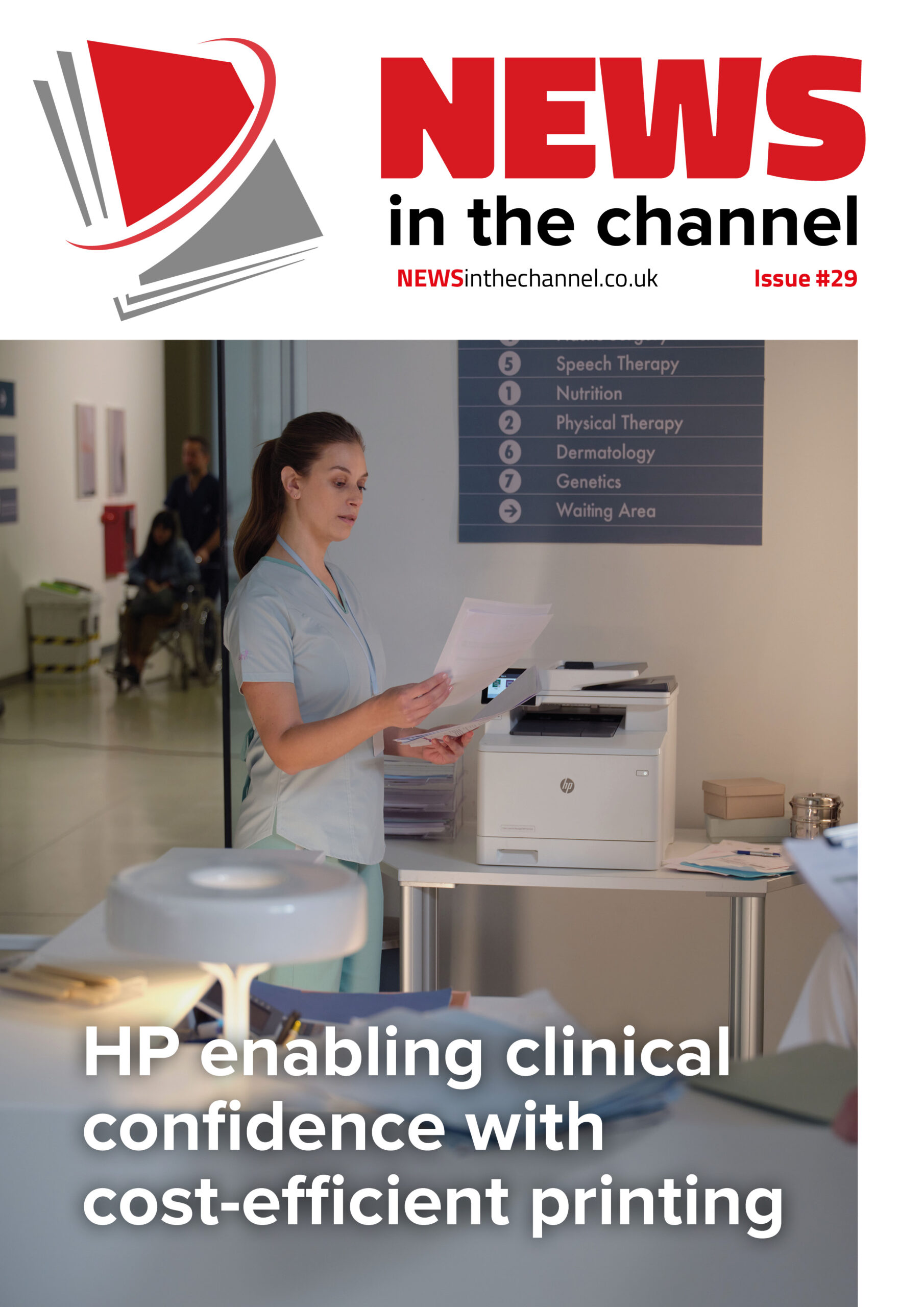The Internet of Things (IoT) has begun to come of age, with businesses using more connected devices than ever as they seek greater automation, efficiency and data collection. Connected devices can make a real difference to businesses – including SMBs. IoT is part of many people’s daily lives today – everything from doorbells to coffee machines to controlling heating systems can be connected now – and the same is true in many businesses too.
As businesses look to automate processes to help them to become more efficient and free up employees to do more productive tasks, IoT has been harnessed in various ways to help achieve this.
It isn’t just larger businesses embracing IoT, small- and medium-sized businesses (SMBs) are doing so too. Richard Eglon, CMO of Nebula Global Services, says there is increasing interest in IoT from SMBs. “It’s a trend we have been experiencing for some time now and that trend continues to grow,” he says. “The main driver seems to be due to the end client looking to achieve a specific outcome over adopting a specific technology. This has been influenced primarily by our own personal lives, if you think of how many IoT devices we manage daily from our Ring doorbell through to our heating or washing machine. As a result, businesses are demanding the same customer experience in their world of commerce.”
Kristian Torode, director and co-founder of Crystaline, agrees that IoT is gaining in popularity for SMBs. “While IoT has already embedded into multiple large-scale industrial applications, SMBs are now finding that it can have a big impact on their operations too,” he says. “At its heart, IoT involves equipping physical objects – from vehicles to office equipment – with sensors that gather and transmit data. This data can be analysed in real time to help businesses improve operational efficiency, reduce costs and manage assets more effectively.
“IoT technology can make day-to-day operations smoother and smarter, freeing up employees to focus on more valuable tasks. For instance, businesses in retail can use IoT-enabled digital signs to tailor content to current offers for customers, while logistics companies can benefit from vehicle tracking to optimise fleet management. Additionally, IoT-powered security systems allow business owners to monitor premises remotely and receive real-time alerts, enhancing security without needing manned guards.”
Trends
There are various trends among SMB customers for IoT devices currently. Mike Barron, managing director at SYNAXON UK, says that there has been interest in smart security devices and cameras from SMBs. “We’ve also seen more interest in smart management products – sensors that sense when people are present and enable you to control lighting and heating, for example,” he adds.
“While it got off to a fairly slow start, this part of the market is certainly picking up now. There is a growing realisation that the products work and are quite easy to install and use – and that they help to reduce costs and save energy. Several of our partners have actively started taking smart systems to market and with some success.”
Richard agrees, saying that physical security is one of the biggest trends Nebula has seen this year. “This covers a plethora of devices from video surveillance cameras through to vape sensors and door entry systems,” he says. “Following this demand Nebula has invested a significant amount of resource in becoming a global premier services partner for Verkada – a physical security emerging vendor, where we provide onsite services from surveys and installations through to ongoing maintenance.”
Phil Huang, business development and field application manager at D-Link UKI, adds that there are two current dynamics influencing uptake of IoT. “The first is the evolution of the BYOD [bring your own device] movement,” he says. “While it used to be the case that employees used one or two devices for work – like their laptop and mobile – many today now use four or five devices including smartphones, tablets and wearables. The network must be able to accommodate those additional internet-connected devices.
“The second shift we’re seeing across SMBs is an increase in the number of internet connected sensors, cameras or access control devices that are being added to the network. Those are usually installed to drive security, convenience and efficiency to ensure consistent quality or ensure effective energy management. While both of those trends mean that the network infrastructure needs to have the capacity, coverage and security to support those devices, customers in the SMB space are even more budget conscious than, say, the corporate market.
“Therefore, they typically seek solutions that match value with performance, and D-Link’s range of switches and access points provides SMBs with the right solution that suits their current and future needs at a budget-friendly price point.”
Efficiency gains
IoT can have a positive effect on a business in terms of efficiency, and this is often a major selling point. “As IoT products are often built on cloud-based, AI-enabled platforms they provide a significant opportunity to drive efficiencies through the data that can be captured an analysed,” says Richard. “Whether that be managing power consumption, automating common tasks, providing proactive enhancements or monitoring performance.”
Phil adds that IoT enabled devices help drive efficiency by providing real-time data and insights into business activities and processes. “This means decisions can be made on-the-fly, based on current data and status,” he says. “This can save money and the wrong decisions from being made based on out-of-date information. Furthermore, the data can be analysed to look for patterns that may predict future outcomes so they can be anticipated in advance and planned for.”
Network management
But the proliferation of IoT devices means SMB customers are facing a new challenge; how best to effectively and easily manage a network that now has significantly more endpoints, notes Phil. “That means that networks must accommodate the surge in devices without compromising performance, so SMB are seeking solutions that deliver enhanced capacity and coverage,” he says.
“SMBs will also have to consider that, with more devices connected, the potential attack surface for cyber threats expands. Therefore, we expect to see growing demand for device management platforms that offer robust security measures to mitigate against risk and bad actors.”
Phil adds that as a supplement to IoT enabled devices, Power-over-Ethernet capabilities bring additional flexibility and convenience when it comes to installation and positioning of IoT devices around SMB environments. “Not only are businesses able to power and connect IoT devices with only a single cable, they also have the capability to reposition those devices easily and without the added expense of calling in a professional electrical installer to make alterations,” he says.
“Given that more IoT devices are attached to a network, it’s very important to have network management tools in place to configure, monitor and anticipate issues to ensure the network is reliable and dependent. Solutions like D-Link’s Nuclias management platform help to deliver against this requirement, securely, efficiently and cost-effectively.”
Reseller conversations
This is just one thing that resellers should highlight when talking to SMB customers about IoT, but there are plenty of others that should also be part of the conversation. Richard notes that resellers should start with the outcome. “What does success look like for the customer?” he says. “Identify the key drivers for adopting IoT and highlight the benefits it brings.”
Mike adds that resellers should embrace the technology too. “Then it is about opening a conversation with customers who could possibly benefit – which is just about every customer, so the potential with IoT and smart devices is very good indeed. We certainly see this as a growing area of the market.”
Future
Indeed, as IoT technology continues to develop, and the use cases for SMBs continue to grow, the expectation is that the market will continue to grow strongly in the coming 12-18 months. “With more emerging IoT vendors bringing exciting platforms to a growing IoT marketplace there is a huge opportunity for resellers to add these solutions to their existing portfolio,” says Richard. “However, in order to differentiate, resellers need to identify where they can add value over their competitors, as IoT solutions need more than a simple product resell.”
Kristian adds that the market for IoT solutions is set to expand as SMBs realise how accessible and impactful these technologies can be. “Through our partnership with Vodafone, Crystaline makes it easy for SMBs to access the benefits of IoT with Vodafone’s Smart Connectivity suite of managed IoT services. These solutions are designed to simplify IoT deployment, giving SMBs the tools they need to enhance productivity, security and energy efficiency. IoT doesn’t need to be complex – with the right support, even small businesses can use IoT to unlock new levels of operational insight and efficiency.”











